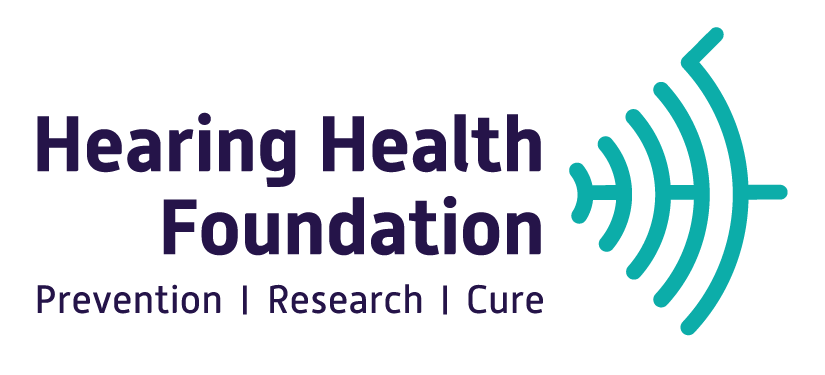Despite the benefits of cochlear implantation, adoption is low. Current cochlear implant (CI) usage among adults who are indicated for them is about 5 percent. Uncertainty surrounding the outcome of cochlear implantation drives top patient concerns.
How My Hearing Loss Makes Me Better at My Job
By Sarah Bricker
My hearing loss journey led me to a position as a communications specialist at Starkey Hearing Technologies, the Minnesota-based hearing aids manufacturer. Managing a hearing loss at work has meant that I sometimes have trouble hearing speech in noisy conference rooms, and that I may miss various sound cues during international phone calls. Yet as I navigate these challenges in the office, I can also see that having a hearing loss has actually helped me to become a better employee.
I am comfortable asking for help. There’s a misconception that asking for help means you’re incapable of doing your job or it will make your boss or colleagues think less of you. But I see asking for assistance as showing an interest in learning and growth and a desire to recognize weaknesses and overcome them.
“Hard work” is my middle name. Having a disability often means I have to work a little harder than those with full abilities. I may have to try harder to hear in staff meetings, when talking to clients on the phone, or when attending a seminar in a large auditorium—but I also focus and do due diligence before and after meetings and calls to make sure I didn’t miss anything. Even with my hearing aids, it’s better to be safe than sorry.
I find creative solutions. Because my hearing loss can sometimes prevent me from doing something the usual way, I am always looking for an innovative approach. I believe this is a life skill that will enable me to take on challenging projects at the office and figure out solutions others may not have considered.
I am more accurate in my work. I know I may miss parts of conversations and other sound signals, but being aware of this has set me up to be extremely detail-oriented otherwise. I am hyper-aware of all the minutiae and will carefully analyze each element of an assignment before I consider a project finished.
I work well alone and with a team! Having a hearing loss means I’ve learned the skills necessary to be self- sufficient and to succeed on my own. By the same token, my hearing loss has also given me an underlying “Go Team!” attitude from years of asking for help. I know I can rely on my team, whether it’s to fully follow a group discussion or to make sure I get all the notes I need in a conference hall.
I am patient. Hearing loss means I may have to listen to the same phrase three times before understanding it, but that’s okay. I’ve learned that getting it right is more important than getting it right now. That outlook is extremely beneficial when it comes to long-term projects and client relationships, not to mention everyday interactions with colleagues, friends, and family.
Texas native Sarah Bricker holds a bachelor’s degree in journalism from the University of Missouri and is a communications specialist at Starkey Hearing Technologies in Minnesota. She has a profound progressive sensorineural hearing loss that was diagnosed at age 13. This article originally appeared in the Winter 2017 issue of Hearing Health magazine.
The Miracle of the Cochlear Implant
By Barbara Sinclair
Barbara and her husband, Charles, who also has a hearing loss, in 2004.
My mother didn’t realize I couldn’t hear until one afternoon when I was about 3 years old. I was happily playing on the floor with my younger brother. Suddenly I glanced up and saw Tex looking at Mother, who had clapped her hands. Not hearing any noise, I didn’t respond. Frantic with worry, Mother called Daddy telling him I couldn’t hear. She then took me to the doctor. No wonder I was slow in talking! Sound meant nothing to me. I didn’t know that I needed to talk to express feelings.
A teacher trained at St. Louis’s Central Institute for the Deaf taught me how to speak and read lips at home in Cleveland. I never heard a sound until I got my first hearing aid around age 9. The earliest audiometric evaluation I still have is from 1984, when I was 55, and it showed a profound hearing loss in my right ear. My left ear was even worse, termed “dead.” With training in speaking and lip-reading (speech-reading), I stayed in a mainstream school with the help of a hearing aid, although I really depended on lip-reading to get by. The hearing aid gave me a sense of being able to communicate, but it didn’t help much when it came to understanding speech.
I imagine anyone born with a hearing loss doesn’t always understand why they can’t hear. Many times I had wondered this myself. My doctors are also unaware of the cause. I speak a little differently, with a metallic sound and slight accent, sometimes accenting the wrong spots as I speak. However, this did not impede school or, later, work. After I graduated from Arizona State University, I held jobs in bookkeeping, the library, and human resources.
Sounds such as shouting, banging, ringing, and clanging all sound the same to me. What does a ticking clock sound like? Tap-tap, or click-click? Or running water? To me, these sound the same. I can’t hear the wind rattling the window. I feel it. I can’t hear the fury of a rainstorm. I feel it.
It’s hard for me to detect changes in speech tones or pitch, or to tell a low voice from a higher one. I read that a child’s laughter is like the delightful rippling of a water stream. I can’t identify that sound. But even though I can’t enjoy music or follow group conversations, there are some advantages to not hearing—I sleep without any interfering noises.
In 2001, our audiologist mentioned cochlear implants to my husband Charles, then age 72, who also has a hearing loss as well as being blind from retinitis pigmentosa. I researched cochlear implants and found this description from ABC News. It dates from 2001 but is still accurate today: “For those with normal hearing, sound enters the ear, triggering hair cells in the cochlea, a spiral tube filled with fluid. Those excited hair cells send information to the hearing nerve, which sends signals to the brain, allowing us to hear.
“But, if deaf people have damaged hair cells in their cochlea, an implant can also do the same work. With an implant, sound is picked up by a tiny microphone connected by a cord to a small box outside the ear. The box turns sound into a signal—transmitting it through the skin, straight into the skull. Electronics in the skull send the signals straight to the hearing nerve, bypassing the cochlear hair cells that don’t work.”
We went to see Wesley Krueger, M.D., an otolaryngologist in San Antonio. After a series of tests, Dr. Krueger told Charles that his hearing wasn’t actually severe enough to be a candidate for an implant. He was stunned for a minute, and then asked the doctor if there was a possibility for me to get an implant. Then it was my turn to be stunned.
Weeks later, following my own series of tests, Dr. Krueger came into the room, grinning, and announced, “You are a candidate for a cochlear implant!” I was speechless as he showed me the components of “the bionic ear”: the external hearing aid-like processor and transmitter; the receiver under the skin that connects to electrodes; the magnet that holds the implant in place on the skull.
I had the surgery a month later, when I was 72 years old. A week after the bandage from my right ear was removed, I felt dizzy, but there was almost no pain at all. I then realized that the implant made me unable to hear with my hearing aid. Whatever hearing I had was gone.
For 30 days I agonized whether I’d be able to hear. The incision behind the ear must heal for that period before the bionic ear can be activated. Then, finally, activation day came—and was successful! There were beeps and squawks, but I could hear! Relief enveloped me as I progressed through the programming of the device. Sounds were distorted and muddled, but they were all new to me.
It has been 17 years since the implant. My device has been reprogrammed again and again until clarity reached its peak. I still don’t understand speech perfectly, but I do hear sounds I had not heard before: a ticking clock, running water, a humming car motor—and yes, the laughter of our four grandchildren.
Barbara Sinclar lives in Texas. She is a Faces of Hearing Loss participant.






